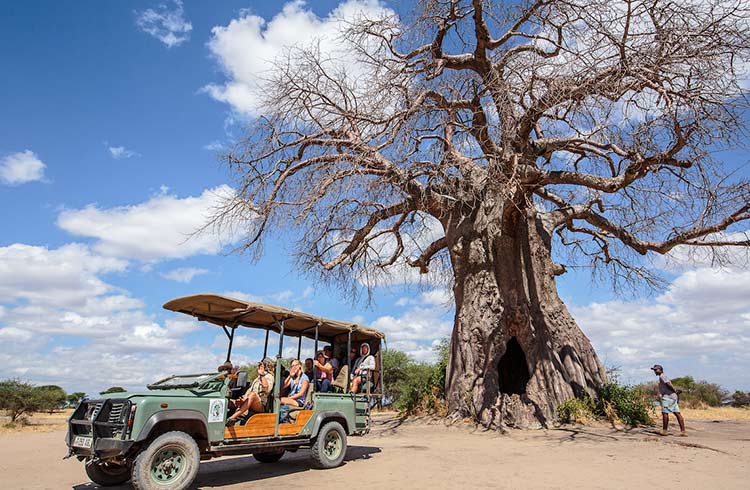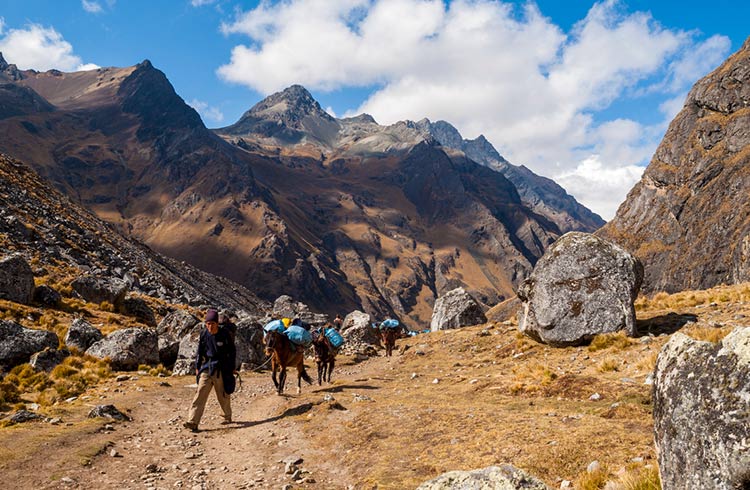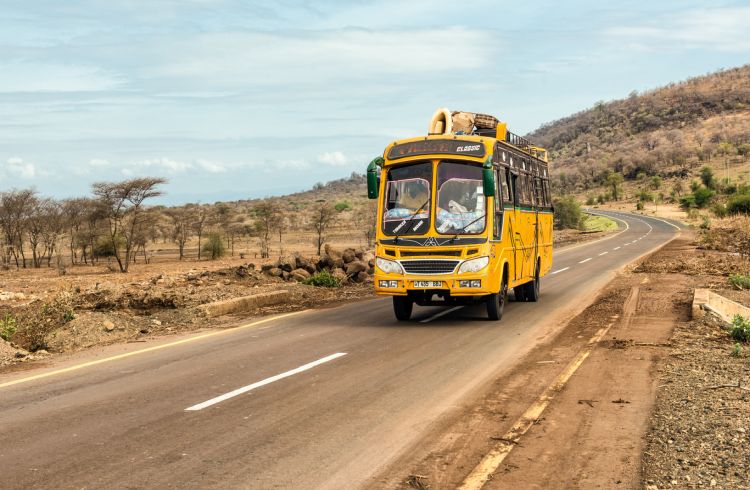How to Stay Healthy in Tanzania: Travel Hygiene Tips
As diverse as its wildlife, Tanzania unfortunately has a diversity of health issues too. Don't get taken down by illness or injury while traveling. Here's the information you need to stay safe and healthy.
 Photo © Brian Rapsey
Photo © Brian Rapsey
- Medical Treatment in Tanzania
- Vaccinations for Tanzania
- Mosquito Borne Diseases
- Other Disease Risks in Tanzania
- Food & Water Borne Diseases
- Environmental Health Risks in Tanzania
- Altitude Sickness & Hypothermia Risk at Mt Kilimanjaro
Medical Treatment in Tanzania
Medical services in Tanzania are limited and depending on your illness or injury, you may need to be medically evacuated to a major city for a higher level of treatment.
We recommending carrying a travel first aid kit which contains the basics plus extras such as bandages, anti malarials, anti gastro tablets etc. that way you can start to treat any potential health issue before seeking medical assistance.
Bring any medications you may need with you along with a doctor's letter outlining what they are for to save wasting your holiday time finding them while traveling. Pharmacies in major cities tend to have good supplies but can have medications with short and past expiry dates or the quality is not to western standards so check you before buy.
Vaccinations for Tanzania
The following vaccinations are recommended for travelers heading to Tanzania:
- Routine vaccinations: measles, mumps, rubella, polio, adult diphtheria and tetanus
- Hepatitis A
- Hepatitis B
- Typhoid
- Cholera
- Rabies (If you are planning to interact with animals on your trip or participating in outdoor activities such as camping, hiking and other adventure travel activities)
Mosquito Borne Diseases
Malaria
Malaria is common to Tanzania. The sad news is, if you stay a lengthy period of time in the country, you are most likely to suffer a bout on your stay. Malaria is certainly a killer, but it rarely claims the life of travellers. The existence of anti-malarial drugs in hospitals means you can take a tablet and suffer just a few days of bad health.
Most travelers take precautions for malaria and drugs like Malarone readily available in all Western countries.
But anti-malarial drugs have a downside, nausea, fainting and psychological side effects are common for those taking the drugs.
Most doctors advise taking the medication for only a few months, which doesn‘t help if you are destined for a year-long stay in Africa.
Some good advice with dealing with malaria – cover up at night, use mosquito nets and during the day wear long, loose-fitting clothing and applying a strong insect repellent to avoid being bitten.
Yellow Fever
If you are planning to head to Tanzania from a yellow fever infected country, you will need to carry a yellow fever vaccination certificate. However it's advised to have the yellow fever vaccination before departure which will protect you for 10 years.
Like malaria, yellow fever is carried and transmitted by mosquitos and exhibits flu-like symptoms and at worst, liver inflammation. Like any other mosquito borne disease, you can take preventative measures to stop yourself from being bitten.
Dengue Fever
Occasionally, dengue fever pops up in Tanzania, particularly in Tanzania's largest and most populous city, Dar Es Salaam. Similar to mosquito-borne malaria, dengue fever causes excruciating muscle-joint pain and throws in a fever for that extra punch. You can get each strain of dengue fever only once, but there are 5 strains.
Each successive infection increases your chances of developing the more severe Dengue Hemorrhagic Fever. The dengue fever carrying mosquito likes to be around during the day and in the shade, so under building eaves and in shady spots - exactly where you like to be when you are escaping the sun. Unfortunately, there is no vaccination available for dengue fever. Learn more about dengue and what you can do to prevent it here.
Other Disease Risks in Tanzania
Sleeping Sickness
The Trypanosoma parasite carried by tsetse flies produces tryptophol which causes that sleepy feeling and it's the same chemical compound found in wine. No wonder we get sleepy a glass or few.
There have also been recent cases of sleeping sickness occurring after bites from tsetse flies in Northern parts of Tanzania, including the Serengeti. Control programs are helping to stem the number of sleeping sickness cases however according to World Health Organisation there were 3796 cases recorded in 2014.
To help prevent bites from the tsetse fly, cover up and try not to wear dark or bright colours. Apply DEET based insect repellent.
Cholera
Cholera (of which approximately 4000 cases were reported by the end of October 2009) and rift valley fever occur periodically, largely in rural areas where access to sanitation is limited.
Drink or use only boiled or bottled water and avoid ice in drinks. If you suffer from diarrhea during or after a visit to Tanzania seek medical attention immediately.
Schistosomiasis
This disease is a risk throughout Tanzania. It‘s spread by flukes (parasitic flatworms) that are carried by a species of freshwater snail, which then sheds them into slow moving or still water.
The parasites penetrate human skin during swimming and then migrate to the bladder or bowel. They are excreted via stool or urine and could contaminate fresh water, where the cycle starts again.
Swimming in suspect freshwater lakes (including Lake Victoria) or slow-running rivers should be avoided.
Symptoms range from none to transient fever and rash, and advanced cases might have blood in the stool or in the urine. A blood test can detect antibodies if you might have been exposed, and treatment is readily available. If not treated, the infection can cause kidney failure or permanent bowel damage.
AIDS
The AIDS/HIV infection rate is sadly quite high in Tanzania.
While the risk to travelers is low, always take care when traveling with open cuts and practice safe sex.
Rabies
Rabies is found throughout Tanzania and spread by dogs and bats. Vaccination is available and worth getting if you plan to travel extensively around Africa.
Hookworm
Found in dog and cat feces, hookworm is spread when the newly hatched immature worms make contact with human skin after being spread by their host such as a dog or cat brushing against you. The worms penetrate your skin, taking up residence particularly the lower limbs. One type of hookworm can also be spread via contaminated food. Always observe good hygiene practises particularly if you pat a stray animal and take precautions when eating as you would to prevent things like traveler's diarrhea and Hepatitis A.
Food & Water Borne Diseases
In addition to cholera, Tanzania has a variety of food & water bourne diseases you can potentially contract such as typhoid, polio, tuberculosis, gastroenteritis, hepatitis A, dysentry and traveler's diarrhea.
It's important to maintain a good level of personal hygiene while travelling and take other preventative measures such as drinking treated or boiled water, peeling or washing fruit and vegetables in safe water before consumption, ensuring food is thoroughly cooked etc.
Check out this article to help you decide what method of water treatment is better for you.
Environmental Health Risks in Tanzania
Heat Stroke & Exhaustion
Tanzania, like many African countries, bakes under the hot sun and if you aren't careful, you could be red as a lobster in no time. Be sun smart while travelling. Cover up with long clothing, sunglasses and a hat. Apply sunscreen, avoid activities during the heat of the day and ensure you are adequately hydrated are some simple ways you can put a stop to potential sunburn, heat stroke and exhaustion.
Insect Stings
Tanzania has its fair share of all things bitey and stingy. In cheap accommodation you are likely to find bed bugs and scabies. If you are out in rural parts of Tanzania, scorpions can pose a serious risk as their sting can be painful and depending on the scorpion venom, life threatening which you will need immediate medical treatment.
Mosquitos can frequent day or night, so it is worth taking preventative measures to protect yourself from becoming a mozzie smorgasbord.
Snake Bite
Tanzania is home to several species of venomous snake however the risk of getting bitten is relatively low if you follow a few simple bits of advice such as wearing enclosed shoes when out walking, avoiding sleeping on the ground, shaking out your boots, clothing etc before putting them on. If you are bitten it's important you apply a pressure bandage immediately and seek medical attention urgently.
Altitude Sickness & Hypothermia Risk at Mt Kilimanjaro
If you do decide to climb the mighty peak, prepare well and be aware of the affects of altitude.
Altitude sickness is caused by ascending too rapidly, which doesn't allow the body enough time to adjust to reduced oxygen and changes in air pressure. Symptoms include headache, vomiting, insomnia and drop in performance and coordination. In severe cases, fluid can build up within the lungs, brain or both, which can be fatal. First aid options include descending immediately, medications and the use of oxygen administered from a portable container.
Hypothermia is also another significant health risk to travellers trekking in higher altitudes. If you plan to trek up Mt Kilimanjaro, it is important you have the necessary protective clothing for cold and wet conditions. Symptoms can include dizziness, shivering, irrational behaviour such as removing clothing, tiredness, skin numbness and muscle cramping. Snowsafe has some great information on how to properly treat hypothermia should the need arise.
Related articles
Simple and flexible travel insurance
You can buy at home or while traveling, and claim online from anywhere in the world. With 150+ adventure activities covered and 24/7 emergency assistance.
Get a quote

5 Comments
Thank you.
It was helpful
What shots do you need?
my name is kodak black you know that already
you name is kodak black but my name is black kodak
Good article, but I think Chikungunya, though less serious than the other mosquito borne illnesses mentioned, is worth mentioning as well. There's been a substantial outbreak in Kenya this year.